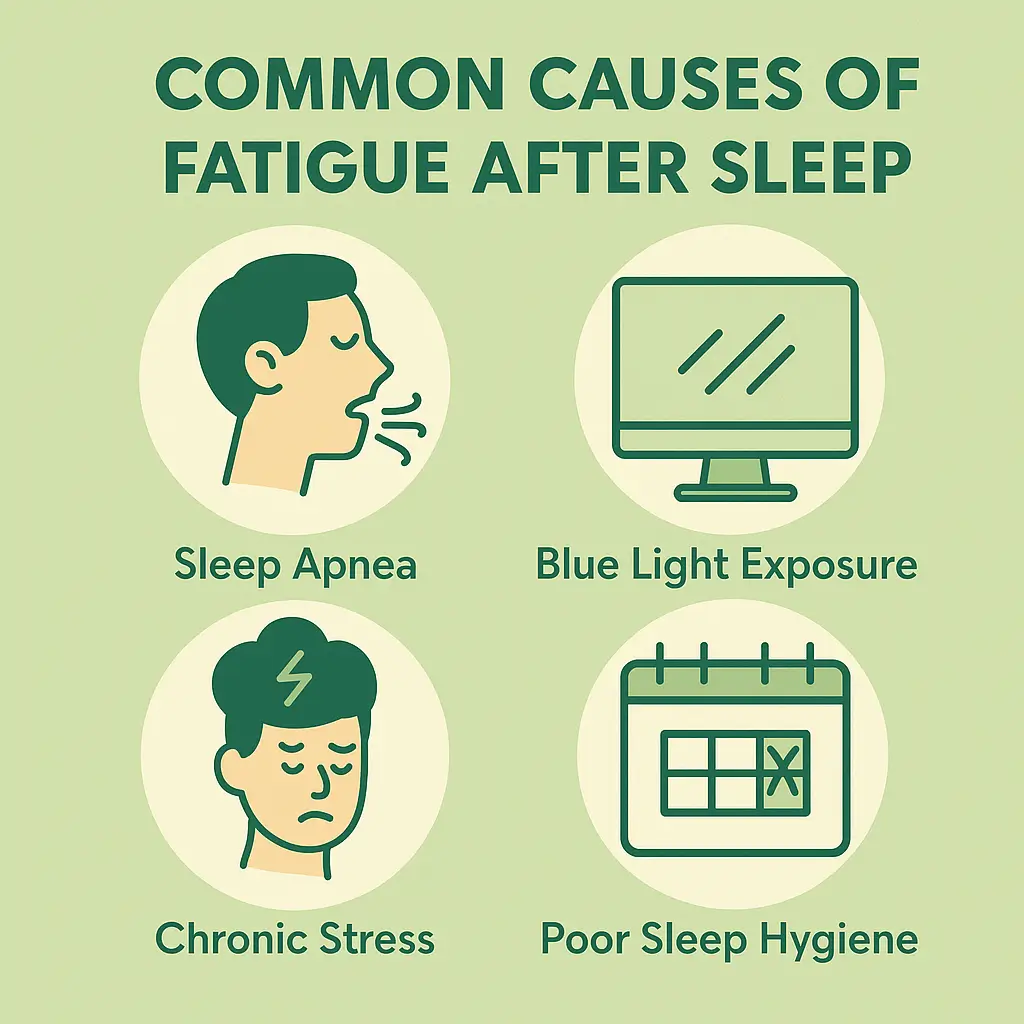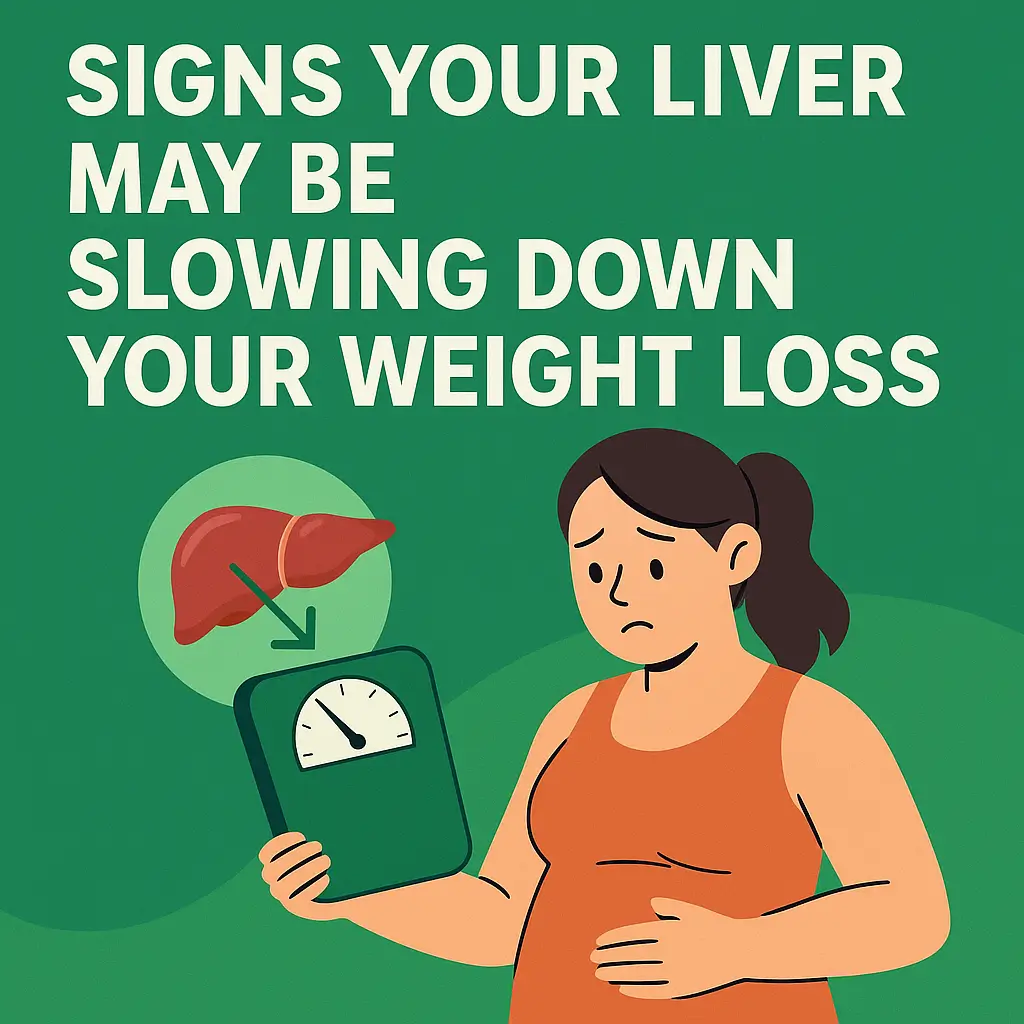Why You’re Still Tired After Sleeping 8 Hours
Waking up tired after sleeping 8 hours? You’re not alone. Many people struggle with feeling rested, even after getting what seems like a full night’s sleep. If you’re constantly asking yourself why you’re still tired after sleeping 8 hours, it’s time to uncover the real reasons behind this daily fatigue.
It’s Not Just About Sleep Duration
We often assume that getting 8 hours of sleep guarantees rest and energy. But quality matters more than quantity. You might be spending 8 hours in bed, but if your sleep is light, disrupted, or not restorative, your body and brain won’t fully recharge.
Common Culprits Behind Poor Sleep Quality
Here are some hidden reasons why you’re still tired after sleeping 8 hours:
- Sleep Apnea: Interrupted breathing during sleep reduces oxygen flow, affecting sleep quality.
- Blue Light Exposure: Screens before bed can suppress melatonin, the hormone that helps you sleep deeply.
- Chronic Stress: Mental stress can cause restless sleep and overactive thoughts at night.
- Poor Sleep Hygiene: Irregular sleep schedules, caffeine late in the day, and uncomfortable sleep environments all contribute to low-quality sleep.
The Role of Mitochondria in Energy Production
Here’s something most people overlook: energy isn’t just about rest—it’s also about cellular health. Your cells contain mitochondria, tiny powerhouses responsible for creating energy. When mitochondria aren’t functioning well, you may feel drained even after a full night’s sleep.
Damaged or aging mitochondria can result in:
- Slower metabolism
- Brain fog
- Physical fatigue
- Weakened immune system
This means the issue may not be how long you’re sleeping, but how your body is producing and using energy.
Signs That Your Energy Problem Is Cellular
If you’re:
- Constantly tired despite getting enough sleep
- Struggling with mental clarity
- Easily exhausted from daily tasks
- Feeling like you’ve aged faster than normal
…it might be time to look beyond sleep and consider mitochondrial health as a factor.
How to Start Feeling Energized Again
While there’s no one-size-fits-all fix, here are a few actionable tips to help improve your energy levels:
1. Improve Sleep Hygiene
- Go to bed and wake up at consistent times
- Avoid screens 1 hour before bed
- Keep your bedroom cool and dark
2. Reduce Stress
- Practice mindfulness or deep breathing
- Take short breaks during your day
- Get sunlight exposure in the morning
3. Fuel Your Mitochondria
- Eat nutrient-dense foods rich in CoQ10, B vitamins, and magnesium
- Move your body regularly
- Stay hydrated
🧠 Pro Tip: Some people are now exploring natural mitochondrial support to restore energy at the source. Stay tuned as we explore these options in our next article: Natural Ways to Boost Mitochondria and Feel Energized.
When to Be Concerned
Persistent fatigue, even after quality sleep, can sometimes point to underlying health conditions like:
- Hypothyroidism
- Anemia
- Depression or anxiety
- Chronic Fatigue Syndrome
If you’ve ruled out lifestyle causes and still feel exhausted, consider talking to a healthcare professional.
🌿 Ready to Feel Energized Again?
If you’re tired of waking up exhausted and want to address the problem at the root, don’t miss our next article.
Discover simple, science-backed strategies to naturally boost your mitochondrial health and finally feel the energy your body is capable of!
👉 Read Now: Can Natural Supplements Help with Tinnitus?
Final Thoughts
If you’re tired after sleeping 8 hours, the problem might go deeper than your bedtime. By taking a closer look at your sleep quality, stress levels, and mitochondrial health, you can start taking control of your energy levels.














Post Comment